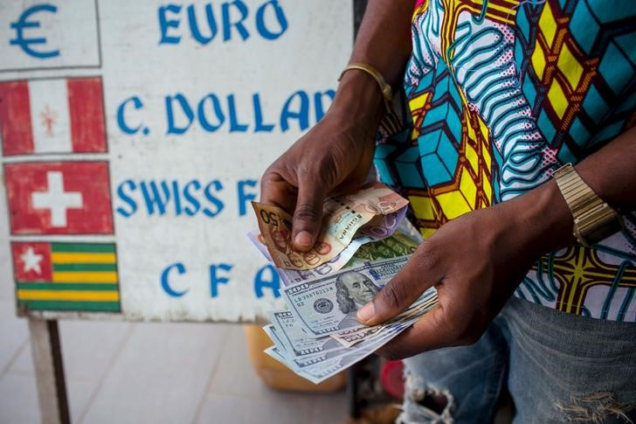AGI President Calls for Innovative Solutions to Address Ghana's Exchange Rate Volatility
Friday, 29 November 2024 | Ghana

The President of the Association of Ghana Industries (AGI), Dr. Humphrey Ayim Darke, has urged the incoming government to prioritize innovative policies aimed at stabilizing the Ghanaian cedi and boosting foreign exchange inflows. Speaking on Joy News' PM Express Business Edition, Dr. Darke emphasized the need for bold initiatives to address the country's persistent exchange rate challenges.
He highlighted the issue of dollarization in the Ghanaian economy, stressing the need for a clear strategy to reverse this trend. "We’re looking for bold initiatives around exchange rate management," Dr. Darke said, urging immediate action to stabilize the currency.
Dr. Darke proposed several solutions, including leveraging remittances and tourism to generate foreign exchange. He pointed to countries like the Philippines and India, which have well-structured remittance policies, as examples Ghana could emulate. He suggested that Ghana could benefit by exporting talent and labor, while also creating frameworks to maximize remittance inflows.
Tourism was another area Dr. Darke identified as a potential short-term revenue booster. He believed that a solid tourism drive, combined with remittance policies, could help alleviate Ghana's foreign exchange shortfall. "Tourism could provide immediate relief," he said, noting that such a strategy could cover up to $4 billion of a projected $10 billion shortfall.
In addition to these measures, Dr. Darke recommended providing targeted support to existing export companies, rather than launching new initiatives that may take years to bear fruit. He emphasized the need to focus on companies already engaged in export and offer them the necessary support to scale up quickly, thus bringing in foreign exchange more efficiently.
However, Dr. Darke cautioned that managing exchange rate challenges requires a holistic approach. "It’s not just about plugging holes," he said, underscoring the importance of building a resilient economy that is less reliant on foreign currency.
He highlighted the issue of dollarization in the Ghanaian economy, stressing the need for a clear strategy to reverse this trend. "We’re looking for bold initiatives around exchange rate management," Dr. Darke said, urging immediate action to stabilize the currency.
Dr. Darke proposed several solutions, including leveraging remittances and tourism to generate foreign exchange. He pointed to countries like the Philippines and India, which have well-structured remittance policies, as examples Ghana could emulate. He suggested that Ghana could benefit by exporting talent and labor, while also creating frameworks to maximize remittance inflows.
Tourism was another area Dr. Darke identified as a potential short-term revenue booster. He believed that a solid tourism drive, combined with remittance policies, could help alleviate Ghana's foreign exchange shortfall. "Tourism could provide immediate relief," he said, noting that such a strategy could cover up to $4 billion of a projected $10 billion shortfall.
In addition to these measures, Dr. Darke recommended providing targeted support to existing export companies, rather than launching new initiatives that may take years to bear fruit. He emphasized the need to focus on companies already engaged in export and offer them the necessary support to scale up quickly, thus bringing in foreign exchange more efficiently.
However, Dr. Darke cautioned that managing exchange rate challenges requires a holistic approach. "It’s not just about plugging holes," he said, underscoring the importance of building a resilient economy that is less reliant on foreign currency.


 How to resolve AdBlock issue?
How to resolve AdBlock issue?